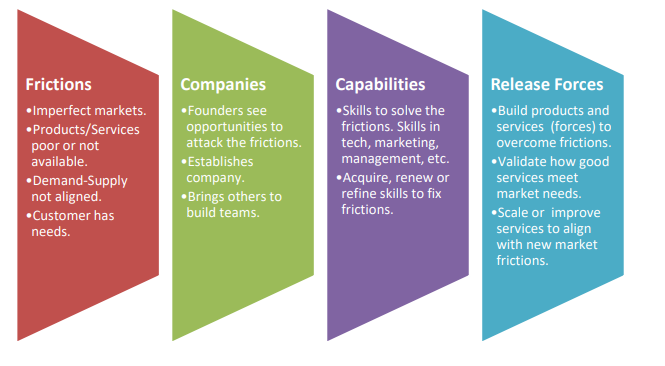
In an era defined by rapid technological advancements and dynamic global economies, entrepreneurship and innovation have emerged as critical drivers of economic growth and societal progress. Egypt and South Africa, two key players in the African continent, have been under the lens of the Global Entrepreneurship Monitor and the Global Innovation Index for the past few years. The analysis of their scores, particularly in relation to fear of failure, innovation, and perceived capabilities, provides valuable insights into the challenges and opportunities that each country faces. This piece aims to critically assess these results and propose practical policy and managerial solutions to stakeholders invested in fostering entrepreneurship and innovation within these nations.
The Correlation Between Fear of Failure and Innovation
The link between fear of failure and innovation is a complex and often underestimated aspect of entrepreneurial ecosystems. The analysis reveals a significant positive correlation between levels of innovation and fear of failure in both Egypt and South Africa. However, this correlation is marked by intriguing differences between the two countries.
Register for Tekedia Mini-MBA edition 16 (Feb 10 – May 3, 2025) today for early bird discounts.
Tekedia AI in Business Masterclass opens registrations.
Join Tekedia Capital Syndicate and co-invest in great global startups.
Register to become a better CEO or Director with Tekedia CEO & Director Program.
In Egypt, the relationship between fear of failure and innovation is not as pronounced, indicating a more balanced approach to risk-taking and innovation. On the other hand, South Africa exhibits a stronger negative correlation, signifying a higher level of fear that impedes innovation. The data underscores that a unit increase in fear of failure led to an astonishing 85% reduction in embracing innovative culture in South Africa, compared to 51.6% in Egypt.
Implications for Policy and Management in South Africa
The negative correlation observed in South Africa between fear of failure and innovation demands strategic interventions to foster a more conducive environment for entrepreneurship. Policymakers and business leaders should collaborate to address these challenges head-on. A multi-pronged approach could include:
- Cultivating a Growth Mindset: Implementing education and awareness programs that promote a growth mindset can mitigate the fear of failure. This could involve showcasing real-life success stories of entrepreneurs who faced setbacks and turned them into stepping stones for innovation.
- Access to Resources: Enhancing access to financial resources, mentorship, and networking opportunities can alleviate the perceived risks associated with entrepreneurship. Establishing incubators and accelerators can provide aspiring entrepreneurs with the support they need to navigate challenges confidently.
- Regulatory Reforms: Simplifying bureaucratic procedures and streamlining regulations can reduce the barriers to entry for new ventures. A transparent and efficient regulatory environment encourages innovation by minimizing uncertainty.
- Cultural Shift: Encouraging a cultural shift towards embracing failure as a learning experience rather than a setback can reshape attitudes toward risk-taking. This could involve initiatives that celebrate entrepreneurial resilience and perseverance.
Perceived Capabilities and Fear of Failure
The correlation between fear of failure and perceived capabilities adds another layer of complexity to the analysis. Both Egypt and South Africa show a significant relationship between these two factors, suggesting that an individual’s belief in their capabilities can influence their willingness to take risks and innovate.
Policy and Management Strategies in Egypt
In Egypt, where fear of failure correlates with perceived capabilities, there is an opportunity to enhance entrepreneurial self-efficacy through targeted interventions:
- Entrepreneurial Education: Implement comprehensive educational programmes that emphasize skill-building, self-confidence, and experiential learning. When individuals feel competent, they are more likely to embrace innovation.
- Mentorship and Role Models: Establish mentorship programs connecting aspiring entrepreneurs with successful business leaders. Seeing others who have overcome challenges can inspire confidence and reduce fear.
- Psychological Support: Provide psychological support for entrepreneurs and innovators, helping them cope with the pressures of failure and uncertainty. This could include counselling services and peer support groups.
The analysis of Egypt and South Africa’s entrepreneurship and innovation landscape provides a nuanced understanding of the role that fear of failure and perceived capabilities play in shaping these countries’ trajectories. Crafting effective policies and managerial strategies necessitates recognizing the cultural, economic, and social contexts unique to each nation. By fostering a culture of innovation, providing targeted support, and cultivating a growth mindset, Egypt and South Africa can harness their entrepreneurial potential and drive sustainable economic growth in an increasingly competitive global landscape.

